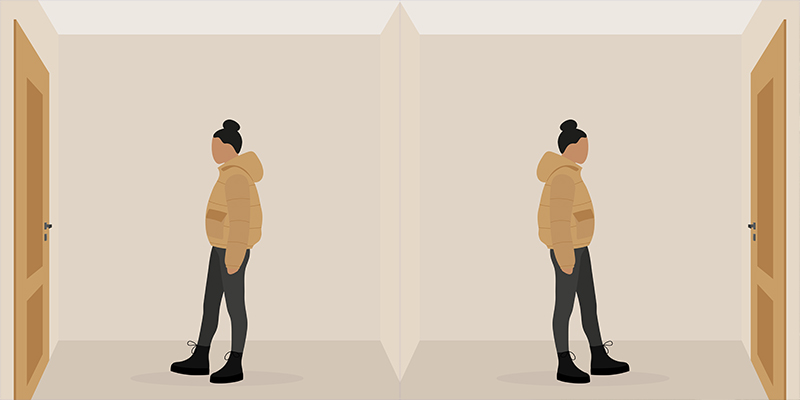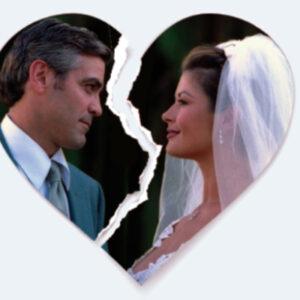We all thought everything was going to change didn’t we? There was a moment back there, when more and more women started standing up and saying, ‘yeah it’s happened to me too’, when Harvey Weinstein went to prison, when women starting talking publicly about what it’s actually like for us to exist in a man’s world, when marches happened, when the media got behind the hashtag. But, let’s be honest, when you look at your life and the life of the women you love, fundamentally what has really changed?
To be sure, no longer can a predatory boss make advances without fear of a tribunal. Coercive control is a recognized offense. Equal pay is at least discussed. Most companies are aware of how many women they employ and in what positions.
Except, six years on, our everyday lives look very similar to how they always have. We still take on the majority of the domestic labor, we still have to listen to sexist crap in the media and at home, we are still statistically paid less, there are very few of us sitting on boards or at the top of organizations. Women are still snatched off badly lit streets, many have their lives oppressed by mental control, plenty are exploited sexually and domestically and, shockingly, in the US on average three women a day are killed by an intimate partner.
Thriller writers have used this underlying fear which accompanies all women’s lives for centuries. We know that there is nothing scarier than being trapped inside your own home, or mind, by a man who wants to control and contain. Thriller writers often don’t need to kill women—they know the stuff of nightmares is much more subtle than that, much more creeping and dread filled.
Stories like this have been written since before the term thriller was even coined. So many of our classic novels like Jane Eyre, Rebecca, Wuthering Heights, Madame Bovary, Lolita, Anna Karenina – they’re all essentially about women being judged, not being believed and being manipulated. Then came writers like Patricia Highsmith, Dorothy L Sayers, Barbara Vine, Mary Higgins Clark and Shirley Jackson, who changed the landscape by being unapologetic about what they were trying to achieve with their writing and what they wanted to make us think. And then, more recently, the genre has exploded. Gillian Flynn’s Gone Girl shook everything up again, reminding us all of the power of the twist and, since then, we’ve been spoilt for choice with so many writers like Paula Hawkins, Lisa Jewel and Laura Lippman (to name a very few) producing ever more complex and shocking novels.
One thing all of these writers have in common is their ability to mix a cracking, page-turning story with serious social and political commentary. In fact, I believe that is one of the great joys of writing thrillers, that we get to combine great story telling with important themes. It is no co-incidence that so many writers and readers in this genre are female, because the themes which are so ripe for exploring in these stories are also the themes which dominate women’s lives. As #MeToo happened a writer friend of mine joked that we might all be out of a job. Well, as ever the joke’s on us because, when it comes to female fear and male violence, nothing has changed. The question for thriller writers then is how are we going to address this? How are we going to continue to write what we see in a post #MeToo world, a world which was meant to be so much better, but simply isn’t.
For a while I’ve sensed something in the air that felt like the beginning of an answer to this question. A feeling that women are done playing nice. You only have to watch a little bit of reality TV to see young women refusing to put up with the toxic masculinity that dominated those shows for so long. #MeToo might not have fundamentally changed things, but it’s made us angry.
Because of all of this I knew, when I started writing One of the Good Guys, that I wanted to flip the narrative. I didn’t want small wins, I wanted to shock and provoke. During the writing process I kept a little strip of paper pinned above my desk. It read: women have had enough and it made me brave. It reminded me that I didn’t want my book to have any female victims in it, I didn’t want anyone to be saved. I wanted to reflect that groundswell of anger I was feeling amongst the women I knew. Except, at the beginning, I wasn’t sure how to do this because it felt like I was going to have to flip the whole idea of what a thriller is and what we as readers expect from it.
I love walking and, about a forty minute drive from my home in Brighton on the South Coast of England, is a wild walk along a cliff path. Along the route you pass three ramshackle cottages which sit right on the edge above a high drop in to treacherous seas. Sometimes I would see a woman in one of these cottages and it made me think about what it would be like to live in such an isolated spot. Naturally the first thing I thought about was the night and how scared I would be. But then I thought about what it feels like to walk alone through the darkened streets of a city and realized I wasn’t any safer there. When my agent sent One of the Good Guys out to publishers she started her letter with a line which encapsulates this feeling: if most men claim to be good, then why are most women afraid to walk home alone at night.
It was the perfect way to sell my book because it had been on these walks that I had worked out what I wanted to do with the story. I decided to take the traditional thriller tropes—a woman living alone on the edge of a cliff, two young women vanishing in a seaside town, a new man in the neighborhood—and flip them on their head.
The book is told in three parts, the first from good guy Cole’s point of view, the second from his ex-wife, Mel’s and then in the last third, we switch between a statement by the woman Cole meets in the first section, Lennie, and lots of different types of media – social and traditional. I was very keen to do this because I think this is one of the places misogyny is still allowed to fester. Women are still judged so harshly in these spheres, their lives like open wounds for anyone to pick through. Nowhere else do we see as clearly how high the bar is to be a good woman and how low it is to be a good man.
I am far from the only thriller writer thinking this way at the moment. Recently I’ve read some brilliant novels such as Catherine Ryan Howard’s The Trap, Kelleye Garret’s Missing White Woman and Rebecca Makkai’s I Have Some Questions For You. All these books are asking the same questions as I am in One of the Good Guys about how, moving forward in this post #MeToo world, we want to see women portrayed in the media and fiction. Because how we tell stories is important. Change only happens when enough people are saying the same words.
One of a Good Guys is a book born out of the expectations involved in being a woman versus the expectations we have for ourselves and the anger in the missed opportunities we’ve all just witnessed. It’s a book inspired by the feeling that women are done playing nice. We can’t wait around any longer for things to change, we have to be the change. That note I wrote myself which sat above my desk for the two years it took me to write this book still sits at the heart of the story: women have had enough. And the answer to the question of what we might do in this post #MeToo world might be: watch out, we’re stronger and angrier than you realize.
***





















